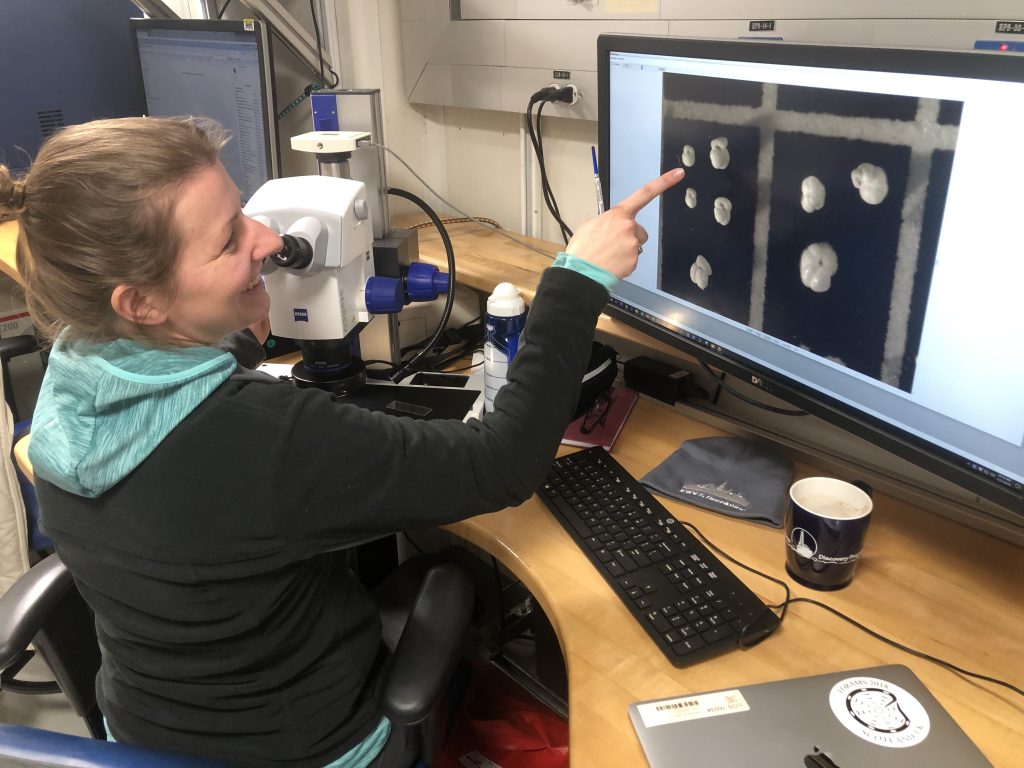
Career Spotlight: Micropaleontologist Anieke Brombacher
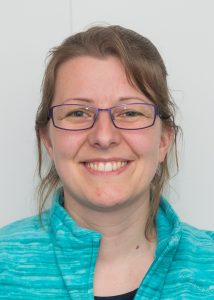
Anieke Brombacher Interview
Please describe your job duties while on the JR. What will you be doing on a daily basis?
-
-
-
-
-
-
-
-
- I will identify planktonic foraminifera species (a type of microfossils) to help determine how old our sediment is. We know which species lived when, so if we find a species that lived between say 10 and 15 million years ago, we know that is also the age of our sample. It is important to know how old the sediment is, because that way we know if our drilling targets have been reached, or if we are getting close to any layers with dangerous levels of oil or gas.
-
-
-
-
-
-
-
Describe one instrument or tool that is essential for you to do your job? Or a piece of equipment on the JR that is useful and why – what does it do?
-
-
-
-
-
-
-
-
- Microscopes! Without them I would not be able to identify the species that we need to determine how old our sediments are. The foraminifera that I study are roughly the size of a grain of sand and have very intricate shell shapes that you would not be able to see with the naked eye.
-
-
-
-
-
-
-
Why is your work (or research) important? What question are you trying to answer or how does your work/research help assist/advance scientific knowledge?
- In my work I study the driving environmental mechanisms of evolution and extinction. It is important to know how species have responded to climate change in the past, because it could tell us something about how species will respond to future climate change: will they be able to adapt, migrate, or are they at increased risk of extinction. With the projected levels of future climate change, answering this question is becoming increasingly important to understand possible future extinction events.
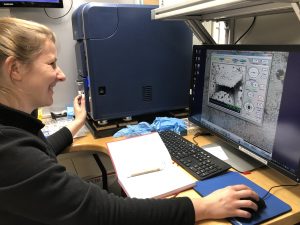
Why the ocean? What made you choose a career at sea or career that involves the ocean?
- I love the ocean! I’ve always been fascinated by whales and dolphins, but I’ve learned that the ocean contains so much more than just the big, well-known species. Even the smallest plankton plays a vital role in the food chain and it is fascinating to see how every component of the ecosystem plays an important part.
What are you most excited about for this expedition and/or being on the JR?
- The research carried out on board the JR is vital for my field. Almost all the material that I use comes from IODP expeditions and everyone in the field has exciting stories from the times that they sailed. It is amazing to be able to experience this mythical ship for myself now! I’m really interested to see what the forams of the Southern Ocean will look like: will their evolution be any different of the species that I have studied in lower latitudes? And also, our expedition takes us into prime whale and dolphin territory. I’m planning to spend as much off-shift time as possible on deck to spot all the weird and wonderful cetacean species of the Southern Ocean, some of which are only found here and are hardly ever seen by humans.
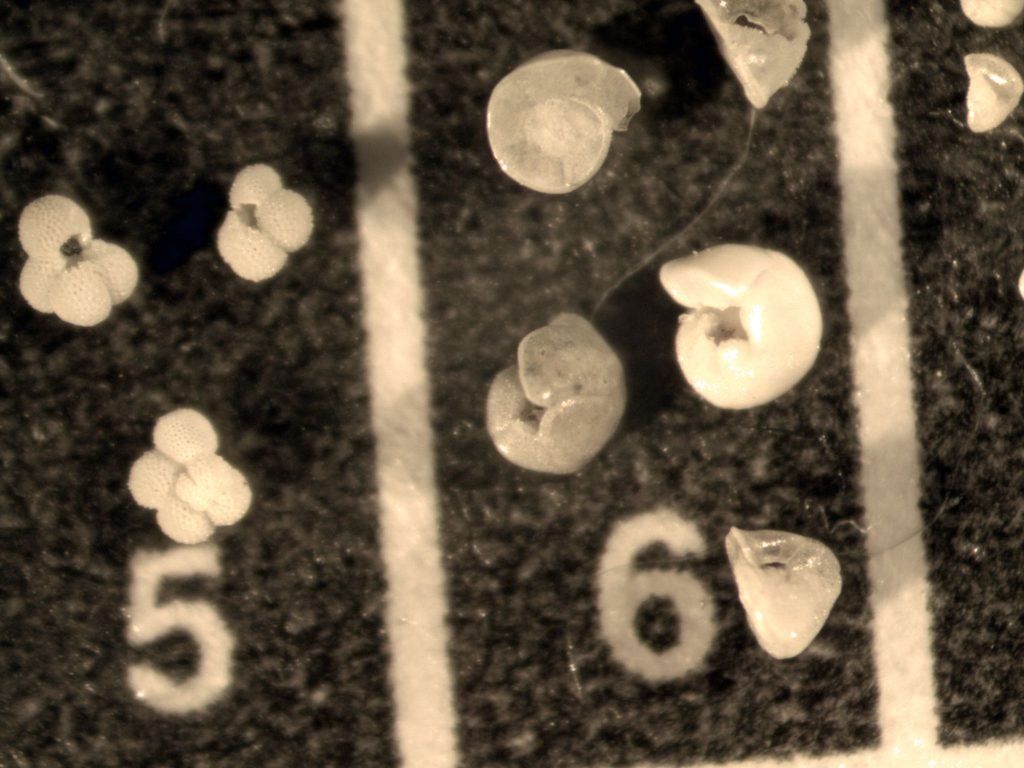
What are three things you think are needed for a successful expedition at sea? And Why!
- A team of enthusiastic scientists, staff and crew. We’ll be spending two months together with no chances to get off, which becomes much more enjoyable when everyone is enjoying working together. But a seaworthy ship and enough food for 2 months are pretty important too!
If you could answer one question about our Earth – what would it be and why?
- Are there more planets like us, and if so, what does life there look like? It would be fascinating to see exactly what is required to get life started, and how evolutionary processes are different among planets. Is it pure chance that we are here, or was it, with the right conditions, bound to happen anyway?
What is your favorite sea creature and why?
- Orcas! I have seen quite a few whales, but orcas are something else. They are extremely intelligent, remain with their family for their entire life, and form distinct cultures. Every culture has their own ‘language’ and hunting techniques, and they only interact with individuals from their own clan. Some cultures have been isolated for so long that they could have become entirely separate species. One of these types lives in the Southern Ocean, looks slightly different from all other orcas, and has a distinct DNA. They are hardly ever seen but live in the area of our expedition, so we might get lucky…
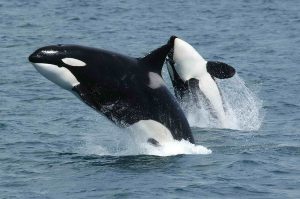
When did you know you wanted to pursue a career in science or an ocean science career?
- I’ve wanted to be a scientist for as long as I can remember. The exact topic has changed a bit (at some point I wanted to be an astronomer), but I’ve always loved learning new things about the planet and its wildlife, and figuring out how to solve puzzles.
What do you personally hope to gain or experience while on EXP383?
- Participating in an IODP expedition almost feels like a rite of passage for a paleoclimatologist. The material collected during these cruises is so vital to our field that it is impossible to be a paleoclimate scientist and not have anything to do with IODP in any way. I am looking forward to experiencing first-hand the process of core recovery and the science done on board to determine age, chemical and physical properties of the sediment cores.
What message do you have for anyone considering a career at sea or a career involving the ocean sciences?
- Stay curious about the world, and ocean, around you. A scientist never stops learning: every time we discover something new, we learn a bit more about the natural world. And it’s never too early to start thinking about your next career steps! Maybe your school offers courses on ocean sciences. Maybe you can find information from universities or colleges about the programs they have on offer, which ones you like the sound of, and what their entrance requirements are to start planning ahead.
What do you do back home when not on the JR?
- When I’m not at work I like to go for walks in the english countryside with my partner, take care of my vegetable plot, read a book, or sketch. I also occasionally play the harp.
Do you get sea sick? If yes or sometimes, please also select the other tab and describe how you cope with it.
- Sometimes: I’ve been on boats before pretty often, and I know that I’m fine as long as I am outside with the wind in my face. But inside the ship is another matter. Inside the ship the motions can become very confusing, especially if you can’t see what’s going on. That sometimes messes with my head and makes me feel a bit queasy. The best remedy for that is going outside, but I’m not really supposed to do that when I’m on a 12-hour shift looking for microfossils down a microscope! The worst thing you can do when you’re feeling seasick is to stay inside and read a book or something. Staring down a microscope on a moving ship is supposed to be even worse, so I’m very interested to see how I will get on with that…
The need for space comes in many forms. Which type of space, in general, is the most important to you?
- _X_Personal Space
- ___Creative Space
- ___Outdoor Space
- ___Emotional Space
- ___Physical Space
- ___Spiritual or Meditative
- ___Outer Space
- ___Community Space
- ___Quite Space
- ___Productive/Work Space
- ___Digital/Virtual Space
- ___Public Space
- ___Inner Space
- ___Other:
Why that type of space? What makes it important to you and will it be available while on the JR?
- After a long day at work I like some peace and quiet, maybe read a book or play some music. Being outside can be pretty calming too, especially on a nice day with a view of the waves. To switch off after my shift I also sometimes like to draw or sketch, which usually completely takes my mind off the working day behind me, so that will be pretty useful too if I don’t want to go crazy. There should be enough space for all of these on board, so I think I’ll be fine!